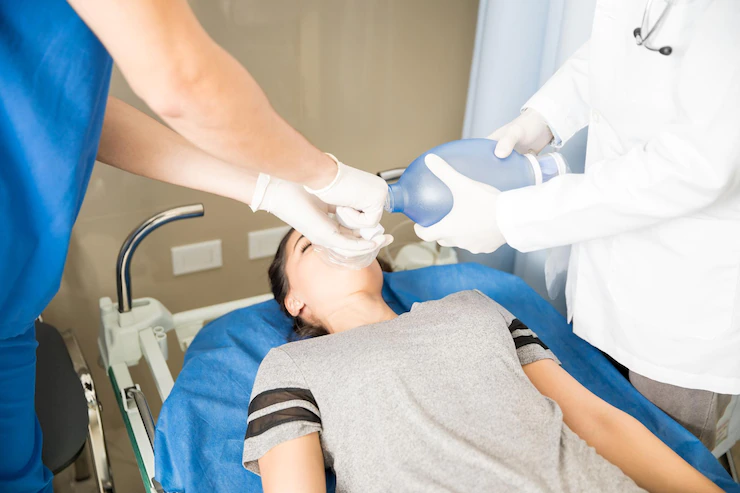Treatment for urinary tract infections (UTIs) typically involves antibiotics to kill the bacteria causing the infection. Some common headings for UTI treatment may include:
Antibiotic therapy:
Antibiotic therapy is a common treatment for urinary tract infections (UTIs). The type of antibiotic used and the length of treatment will depend on the specific type of UTI and the individual’s health history. Common antibiotics used to treat UTIs include:
Nitrofurantoin:
- Trimethoprim-sulfamethoxazole
- Fosfomycin
- Cephalexin
- Levofloxacin.
It is important to take antibiotics exactly as prescribed and to complete the entire course of treatment, even if symptoms improve, to ensure that the infection is fully treated and to reduce the risk of antibiotic resistance. It is also important to inform the healthcare provider of any allergies or previous reactions to antibiotics.

Pain management:
Pain management is an important aspect of treating urinary tract infections (UTIs). Some common ways to manage UTI-related pain include:
Over-the-counter pain relievers: Nonsteroidal anti-inflammatory drugs (NSAIDs) such as ibuprofen or naproxen can help relieve pain and reduce fever.
Warm baths: Soaking in a warm bath can help to relieve pain and discomfort in the lower abdomen.
Bladder analgesics: Medications specifically designed to relieve bladder pain, such as phenazopyridine, can be helpful.
Pelvic floor muscle exercises: These exercises can help to strengthen the muscles that support the bladder and relieve pain.
Home remedies: Some people find relief from UTI-related pain using home remedies such as drinking plenty of fluids, using a heating pad on the lower abdomen, and avoiding irritating foods and drinks.
It is important to consult a healthcare provider before using any pain relief medication, especially if the patient is pregnant or has a pre-existing health condition. In severe cases, prescription pain relievers may be necessary.
If you want to get amazing benefits by using this link:
Fluid intake and urination frequency:
Fluid intake and urination frequency are important components of managing urinary tract infections (UTIs). Recommendations may include:
Increase fluid intake: Drinking plenty of water and other fluids helps to flush out bacteria from the urinary tract and can reduce the severity of symptoms.
Urinate frequently: Emptying the bladder regularly can help to prevent the build-up of bacteria in the urinary tract and reduce the risk of UTIs.
Avoid bladder irritants: Certain substances such as caffeine, alcohol, and artificial sweeteners can irritate the bladder and make UTI symptoms worse.
Empty the bladder completely: Making sure to empty the bladder fully each time can help to reduce the risk of UTIs by flushing out bacteria.
It is important to follow the fluid intake and urination frequency recommendations provided by a healthcare provider, as individual needs may vary. Maintaining good hygiene habits and avoiding bladder irritants can also help to prevent UTIs and reduce the risk of recurrence.

Prevention of future UTIs:
Preventing future urinary tract infections (UTIs) is an important aspect of managing UTIs. Some common ways to prevent UTIs include:
Good hygiene: Wiping from front to back after using the bathroom, and avoiding irritants such as harsh soaps and bubble baths can help to prevent UTIs.
Increase fluid intake: Drinking plenty of water and other fluids can help flush out bacteria from the urinary tract and reduce the risk of UTIs.
Urinate frequently: Emptying the bladder regularly can help to prevent the build-up of bacteria in the urinary tract.
Wear breathable underwear: Wearing loose-fitting cotton underwear and avoiding tight-fitting clothing can help to reduce the risk of UTIs.
Empty the bladder completely: Making sure to empty the bladder fully each time can help to reduce the risk of UTIs.
Avoid bladder irritants: Certain substances such as caffeine, alcohol, and artificial sweeteners can irritate the bladder and make UTI symptoms worse.
Use a prophylactic antibiotic: In some cases, a healthcare provider may prescribe a low-dose antibiotic to prevent UTIs in individuals with a history of recurrent infections.
It is important to discuss individual risk factors and prevention strategies with a healthcare provider, as what works for one person may not work for another. Maintaining good hygiene habits and avoiding bladder irritants can also help to prevent UTIs and reduce the risk of recurrence.
Follow-up care and monitoring for complications:
After a medical procedure or treatment, it’s important to follow up with your healthcare provider to monitor for any potential complications. This may include regular check-ups, monitoring of symptoms, imaging tests, and laboratory tests. The frequency and type of follow-up care will depend on the specific procedure or treatment and the individual’s health condition. The goal of follow-up care is to identify and manage any issues early on, prevent the progression of complications, and ensure the best possible outcome.
It is important to complete the entire course of antibiotics as prescribed by a healthcare professional, even if symptoms improve before finishing the medication. It is also important to drink plenty of fluids and to empty your bladder frequently to help flush out bacteria and prevent future infections.




